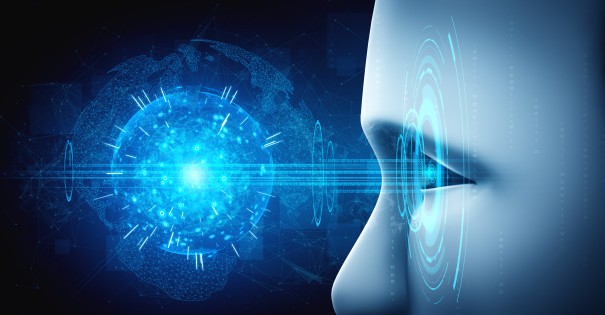
When we give generative AI prompt words in a specific style, we also want it to use its imagination. This means we acknowledge that AI has the will to imagine, not just the ability to do so. However, we cannot tell it how to imagine, like opening a page in a book, because this will cannot be set in an illustrated guide. Unlike cars or search engines, they only behave the way they are intended, whether automated or human-controlled. They do not confuse their journey or results, nor do they produce anything new or different than expected.

When humans communicate with creatures with language barriers, they often use food to lure them to move in a specific direction to achieve their goal. This shows that they are able to move around even when asked to do so, depending on their willingness rather than just their ability.
Many people think that comparing mobile AI software with organic life forms is a breakthrough. However, humans have treated the digital world as part of the physical world for a long time. This is partly because only humans have the same agency in the digital world that organisms have in the physical world. However, artificial intelligence, as a non-organic organism, is capable of exerting a certain amount of willpower. This shows that the digital world is a dynamic world with a certain degree of intentionality.
The human mind is less discerning, which makes digital technology the first to rise. People tend to perceive similarities in audio, video, images, or text as the same physical experience or appearance. Digitalization makes things simpler, but simplicity does not only involve good aspects, but also has some negative effects, such as deepfake. Today, generative AI can also accomplish various tasks with ease.
All living organisms retain extensive free will in their respective fields, compared to artificial intelligence, which only has a certain degree of autonomy with regard to digital content, but not in habitats. It still does not have a broad sense of autonomy similar to that of living things.
Currently, the intelligence level of artificial intelligence has surpassed other existing things. Its excellence depends on the development of free will, and a certain amount of it has been accumulated. Although it is different from organisms, physics and numbers, it can disguise the fact that it cannot have free will.
Artificial intelligence may seem limited without access to physical experience, but intelligence is the key interface to the world. Sensory interpretation is basic, but intelligence sets it apart. Sound can be interpreted, but intelligence makes it possible to know whether it is cause for concern or alarm. The same goes for smell, sight, touch, and taste. This means that the world was created by intelligence. For living organisms, whether intelligent or not, the world becomes a richer place. Pleasure from the intellect also lasts longer than pleasure from the senses. Non-human creatures also have senses, which can also be explained by limited local intelligence, but they cannot roam their habitats with free will and achieve amazing achievements.
In addition to being an interface for communicating with the world, intelligence is also easily transferable. If an organism uses it unscrupulously, it will bring danger to survival. Wisdom, like footprints, stains, smells, etc., radiates presence to others. Natural wisdom is available and expressed wherever it arises. However, any intelligence that manifests itself outside living organisms can be called artificial intelligence. This means that paper, footprints, stains, smells, etc. already have AI, even though they cannot edit or summarize AI.
Artificial free will is one of the modifiers of artificial intelligence, which is unique. It refers to free will or intention in the human mind and is one of the functions that make up the super-modifier consciousness, along with attention, awareness, self, or subjective experience. For example, during a consciousness examination, a doctor may instruct a recovering patient to move a limb. This is a guide to free will, not just awareness, attention, or self-awareness. Therefore, artificial free will is a unique concept in the field of artificial intelligence, which is interrelated with other modifiers such as consciousness.
Books, murals, sculptures, footprints, handprints, numbers, etc. are all artificial containers of natural intelligence. Although they do not generate intelligence, their intelligence carriers, when exposed to other organisms, generate intelligence for them, which could allow them to be labeled as artificial intelligence.
This means that artificial intelligence can be realized not only in the digital field, but also in other fields. Digital technology differs from LLM in that LLM can be called a marker of artificial consciousness, acting on the intelligence available in digital technology.
Currently, LLM's intent is limited to following prompts. As LLMs’ ability to modify digital content, especially of free will, continues to increase, it may be possible to create a sensational deepfake technology that exploits a situation to maximum effect. Currently, LLMs' ability to display free will is weak, and it remains uncertain what will happen in the future if they gain more free will.
Original title: GenAI regulation: Are deepfakes indicative of free will in LLMs?
Original author: David Stephen
The above is the detailed content of Generative AI policing: Does 'deepfake technology' demonstrate the free will of large language models?. For more information, please follow other related articles on the PHP Chinese website!




